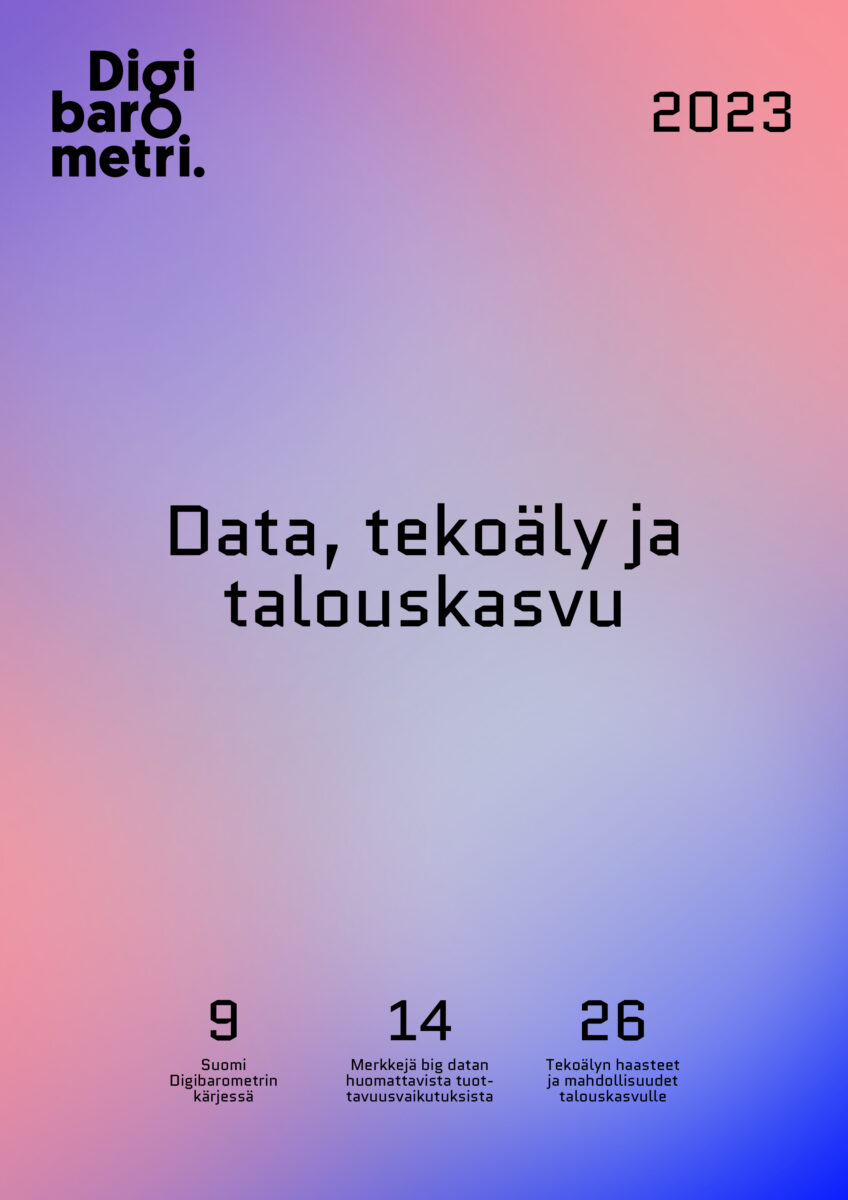
Finland ranks first in the Digibarometer 2023 measurement, overtaking Denmark by a small margin. The Netherlands is third, improving its standing by two places from 2022.
The Digibarometer is a composite indicator that evaluates countries according to how they enable, utilise, and benefit from digitalisation. The measurement is done on three levels (capabilities, utilisation, implications) and across three sectors (firms, civic, and public). Each sector is ranked on each level, thus generating a measurement matrix with nine dimensions.
Finland has been at the top of the Digibarometer ranking throughout its history. It previously held the top place in 2016. Finland’s good standing in the Digibarometer is broadly explained by its high performance across all nine indicators. In 2023, Finland ranks first for capabilities to utilise digital technologies (no change from 2022). It ranks third in utilising these technologies (no change from 2022) and second in the implications (up by four places from 2022).
The special theme for 2023 examines the influence of big data on businesses, detailing its evolution from the perspective of the Finnish corporate landscape. In this study, ‘big data’ refers to the digital traces stemming from various electronic activities and inter-machine communications, necessitating requiring specialised tools and technologies for processing. A business-level review reveals that while most Finnish companies leverage data to some extent, only about one per cent have fully-fledged big data business models. Furthermore, the number of companies utilising big data has been increasing relatively slowly, especially when measured against the surge in data volumes globally.
Finally, the Digibarometer reviews potential economy-wide implications of the recent advances in generative artificial intelligence. The rapid advancement of generative artificial intelligence has the potential to transform numerous job roles and pose adaptation challenges radically. Historically, the broader adoption of comparable technological leaps has taken decades. More comprehensive application of AI could deliver significant benefits to economic growth and productivity, impacting a multitude of sectors and professions globally. At the same time, based on historical accounts, widespread technological unemployment seems unlikely.